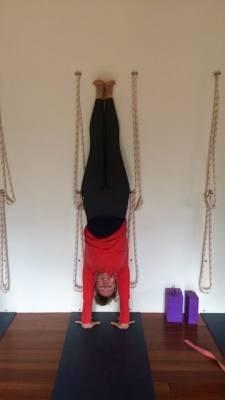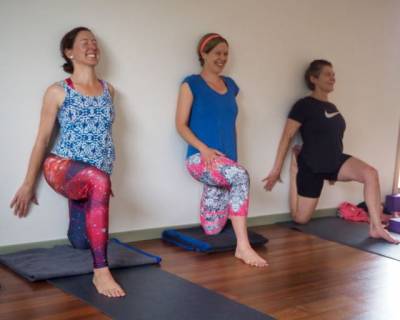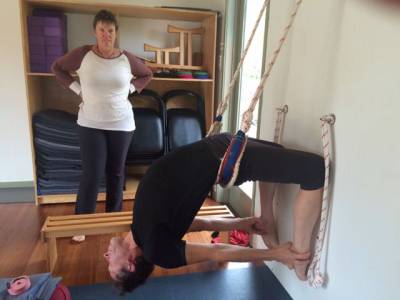By Kimina Lyall
I think “work-life balance” is a strange term. For starters, it implies we are not living at work. Secondly, it suggests that balance is an ultimate goal (of what – life or work?). Thirdly, it implies that one requires an equal amount of work and life in order to get that balance. Presumably under this formula one must “work” half the time? Does that include sleep? Or is sleep outside of life, too? How much time must one spend calculating if the balance is right?
I’m being silly, I know. It’s just a term. It means different things to different people. But I do know that for me, balance is far from restful. In fact, as most of my yoga practice has taught me, balance is bloody hard work. In all its yoga forms – be it on arms, legs, or pelvis – balance is ever-elusive and often momentary.
Balance
What happens when I balance in headstand, or half-moon pose? For me, the first thing I notice is where my mind is. If it is anywhere other than in the asana, balance is immediately lost. But mental laziness is not the only thing that will throw the balance: the asanas are unforgiving of even the slightest physical laziness, too. Balance requires the activation of the entire muscular system. In other words, it takes an extraordinary harmony of mind and body.
slightest physical laziness, too. Balance requires the activation of the entire muscular system. In other words, it takes an extraordinary harmony of mind and body.
Like all work involving strength, at least for me, the ability to sustain it is limited. I understand, theoretically at least, that it might not always have to be this way. We are in fact balancing, in a relatively relaxed way, when we stand. And walking is shifting balance from one foot to another. We are used to these actions, however, and they feel relatively effortless.
But doing it upside down? That’s a different matter. If there is ever a time when I can float without effort in bow pose, I am certain it is a long way off. At the moment it requires intense mental and physical effort. The balance shifts, moment to moment, sometimes by millimetres or fractions of a muscle movement. When my practice is sound, I can make the adjustment easily.
Being steady, alert and relaxed
So, is balance just a means to a better ends, rather than an aspiration in itself? What could that better ends be? Effortlessness? That seems to be what the great yogis have always counselled: to be steady, alert and relaxed in everything we do.
What if I could get there in my yoga practice? I could spend a lot more time upside down, or on one leg, for one thing! But how would that translate into the rest of my life?
Could I practice being steady, alert and relaxed in my work? In my relationship? In my quiet time with myself? As I shop, and walk, and visit friends, and read books? Can I find not balance, but let’s say harmony, within everything I do?
It sounds like something worth working toward.



Join over 2,000 of your peers and get fortnightly articles delivered to your in box.